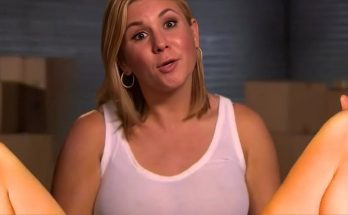“They Said What Others Wouldn’t Dare”: Joanna Lumley and Rylan Clark Bravely Speak Out on Britain’s Explosive Migration Debate
In a country where conversations about migration often ignite passionate disagreements and political firestorms, two of Britain’s most recognizable personalities—Joanna Lumley and Rylan Clark—have stepped into the fray.
With candor and conviction, they have voiced opinions that many in the public sphere might hesitate to utter, sparking a national dialogue that refuses to fade quietly into the background.
A Nation Divided: The Migration Question
Britain’s migration debate is nothing short of explosive. From the halls of Parliament to family living rooms, the question of who should be allowed to enter and settle in the United Kingdom has become a defining issue of our era.
Policies shift, rhetoric intensifies, and the public’s mood oscillates between compassion and concern. Yet, amid the cacophony, few public figures have dared to speak with the frankness displayed by Joanna Lumley and Rylan Clark.

Who Are Joanna Lumley and Rylan Clark?
Joanna Lumley, beloved for her roles in “Absolutely Fabulous” and her tireless humanitarian work, has long been a champion of causes that others shy away from.
Her advocacy for refugees and her outspoken support for more humane migration policies have won her both praise and criticism.
Rylan Clark, meanwhile, rose to fame as a television presenter and reality star, known for his wit, warmth, and willingness to tackle tough topics.
Clark’s background—growing up in a working-class family and navigating the complexities of modern Britain—gives him a unique perspective on the migration debate.
Breaking the Silence: What Did They Say?
It was during a recent televised panel that Lumley and Clark made headlines. Lumley, never one to mince words, argued passionately for a more compassionate approach to migration.
“We must remember that behind every statistic is a human story,” she said. “People come here seeking safety, opportunity, and a better life. If we lose sight of their humanity, we lose something vital in ourselves.”
Clark, sitting beside her, echoed her sentiments but added a layer of nuance. “I get why people are worried,” he admitted. “We all want to feel safe and secure. But shutting the door isn’t the answer. We need honest conversations, not scare tactics.”
The Reaction: Applause and Outrage
The response was immediate and intense. Social media lit up with hashtags supporting and condemning their remarks. Politicians weighed in, some applauding their bravery, others accusing them of naivety. Newspapers ran editorials dissecting every word.
What set their intervention apart was not just the content of their statements but the manner in which they spoke. There was no evasion, no hedging—just a willingness to confront uncomfortable truths.
Why Their Voices Matter
In an age of celebrity soundbites and cautious PR statements, Lumley and Clark’s willingness to engage with a contentious issue is significant.
Celebrities wield enormous influence; their words can shape public opinion and even policy. By refusing to toe the line, they have forced a broader conversation about migration—one that extends beyond the usual talking points.
Their intervention also highlights a growing divide in British society: between those who see migration as a threat and those who view it as an opportunity.
Lumley and Clark, by speaking out, have given voice to the latter camp, reminding the nation that compassion and pragmatism need not be mutually exclusive.
The Broader Context: Migration in Britain Today
Migration is not a new phenomenon in Britain. From the Huguenots in the 17th century to the Windrush generation and beyond, immigrants have shaped the nation’s culture, economy, and identity. Yet, in recent years, the debate has grown more polarized.
Government policies have tightened, with stricter controls and tougher rhetoric. The media often amplifies fears about jobs, housing, and security.
At the same time, grassroots organizations and activists continue to advocate for the rights of migrants and refugees, arguing that Britain’s strength lies in its diversity.
The Risks of Silence
What Lumley and Clark understand—and what their critics may overlook—is the danger of silence. When public figures refuse to engage with difficult issues, the debate becomes dominated by extremes. Misinformation spreads, prejudice festers, and solutions become harder to find.
By speaking out, they have challenged others in the public eye to do the same. Their message is clear: difficult conversations are necessary if Britain is to navigate the complexities of migration with integrity and compassion.
Looking Forward: Can Britain Find Common Ground?
The question remains: can Britain find a way forward that balances security with humanity? Lumley and Clark’s intervention suggests that it is possible—but only if more people are willing to speak honestly and listen carefully.
Their call for empathy does not mean ignoring legitimate concerns about integration, resources, or social cohesion. Rather, it means approaching these challenges with openness and a willingness to seek solutions, rather than scapegoats.
Conclusion: The Power of Speaking Out
Joanna Lumley and Rylan Clark have shown that courage is not just about taking risks—it is about telling the truth, even when it is unpopular.
In doing so, they have injected new energy into Britain’s migration debate, reminding us all that the most important conversations are often the hardest ones to have.
As the nation grapples with its future, their voices serve as a beacon—challenging us to look beyond headlines and hashtags and to remember the human stories at the heart of every debate. In a world where silence can be dangerous, speaking out may be the bravest act of all.



